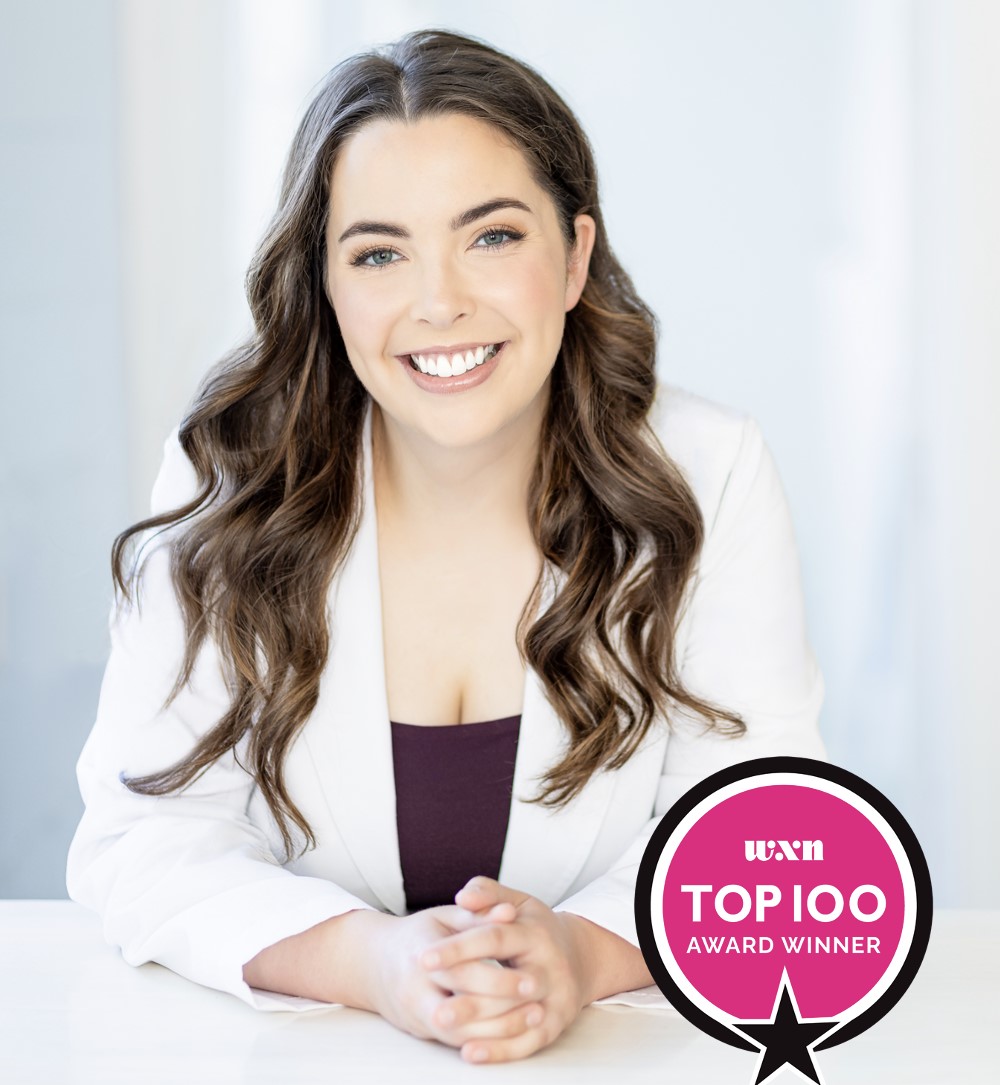
Congratulations, Dr. Rachel Ollivier, 2016 BSN alumnus, on being recognized as one of Canada’s Top 100 Most Powerful Women by the Women’s Executive Network.
Dr. Ollivier is a nurse practitioner and women’s health scientist at BC Women’s Hospital + Health Centre and the Women’s Health Research Institute. In these roles, she provides care to underserved populations in the areas of cardiac health and complex gynecology while leading the development of a world-class menopause program. She is also an Adjunct Professor at UBC Vancouver’s School of Nursing and serves on the Board of Directors for the Canadian Association of Perinatal and Women’s Health Nurses and Options for Sexual Health. Last year, she was named one of North America’s Top 25 Women of Influence.
Dr. Ollivier’s research and education activities focus on postpartum sexual health and global maternal health. Her experience has included collaborating with local care providers in Zambia to develop updated neonatal fluid resuscitation practice policies, conducting hypertension research in Zambia and maternal health research in Tanzania, and teaching in graduate courses at the Muhimbili University of Health & Allied Sciences in Dar es Salaam. She also co-authored two systematic reviews exploring the timing of global maternal and neonatal morbidity and mortality (2022), which informed the World Health Organization’s latest maternal health guidelines. For more on Dr. Ollivier’s achievements areas of research and publications, visit her Adjunct Professor profile at UBC Vancouver’s School of Nursing.
As Dr. Ollivier had the honour of serving as valedictorian for her Bachelor of Science in Nursing class in 2016, the UBCO School of Nursing asked her to once again reflect on her time in the program, her approach to health, and the future of the nursing profession.
What were highlights from your time at UBCO doing your BSN? What are some of the learnings or experiences that have contributed to your career and approach today?
I look back on my time at UBCO very fondly. The BSN program offered such a variety of experiences and opportunities to be involved in activities, clubs, events, programs, and research both on and off-campus. For example, I was fortunate to partake in an international placement in rural Zambia as part of my final practicum in fourth year, something I worked towards and looked forward to throughout the program.
I also volunteered with Swimming with a Mission Okanagan (formerly Making Waves Okanagan), Options for Sexual Health, and the YMCA’s Beyond the Bell program, worked as a Peer Mentor and Research Assistant, served on the School of Nursing’s Comprehensive Practice Committee, and acted in various executive roles for the Global Nursing Citizens and the Nursing Course Union.
Completing my undergraduate degree at UBCO meant having the varied and meaningful opportunities of a large institution paired with sense of community of a smaller institution. I made some lifelong friends while in the program and, as a young adult at the time who was transitioning into a professional career, I learned a lot. Nursing is a program that goes beyond teaching theory in lectures or laboratories—you are expected to be very engaged in your environment and to think critically. You realize quickly that nurses can and do wear so many hats and truly walk hand in hand alongside their patients and communities. I really enjoyed feeling like what I was learning in the classroom was directly contributing to something or someone in a positive way. The BSN program taught me the importance of maintaining an informed and global perspective while providing me with the skills to effectively engage with others and enact change.
Do you have a philosophy of, or approach to, health and wellness?
Health is grounded in our social and physical environment(s), our relationships, our rights, and our ability to adapt. Health is also grounded in community—it takes a community to achieve and a community to maintain. Wellness, to me, is the ability to live fully and prosper in your endeavours, to have a sense of purpose in your life and the ability to pursue your dreams, to know love and connection, and to enjoy each day. Nursing has long viewed health in a multi-faceted way and was one of the first health professions to do so. Even today, nurses have an understanding that is informed directly by their work with people from all walks of life.
What are your thoughts on the nursing profession now and in the near future? What advice might you have for young nursing students or those contemplating entering the profession?
As the largest health profession in the world (29 million and counting), nurses are the pillar of health care and health systems. Nurses are also positioned in more diverse roles now than ever before- from serving on the Senate, to leading transformational change as the Chief Executive Officer, Chief Operating Officer, or VP of Research & Innovation of a health authority, to forensic nursing—opportunities in the profession are always expanding.
Nurses are also being increasingly recognized as experts and their knowledge is more valued, something that is long overdue and that we still need to improve on within health care. For those entering the profession or considering the profession, it is important to know that there are so many ways to ‘be a nurse’. Find what fuels you and what you can contribute while feeling valued. As a nurse, you bring your personal experiences, relationality, and unique perspectives to what you do. When patients can see themselves in their health care providers and feel understood, that is what allows us to provide best possible care.
Comments are closed, but trackbacks and pingbacks are open.